In recent years, the landscape of outdoor cooking has been revolutionized by the rise of smokeless grills. These innovative cooking devices have not only changed the way we prepare meals but have also become a staple in the kitchens of many households. As the popularity of smokeless grills continues to soar, it’s important to delve into the nuances of this growing market, from its key features to the trends shaping consumer choices. Join us as we explore the impact of customization on sales, the data-driven insights fueling market growth, and the challenges and opportunities that lie ahead for the industry. We’ll also examine case studies of successful custom smokeless grill brands and ponder the future outlook for this burgeoning sector. In the end, we’ll conclude with a reflection on how tailoring the grill experience can enhance our culinary adventures.
The Rise of Smokeless Grills in Europe and the USA
In recent years, the kitchen appliance landscape in Europe and the USA has seen a remarkable shift towards smokeless grills. This surge in popularity is not just a fleeting trend; it represents a significant shift in consumer preferences and environmental consciousness.
The allure of smokeless grills has grown as families and culinary enthusiasts seek a healthier alternative to traditional charcoal or wood-burning grills. These modern devices not only reduce the smoky aroma that lingers in the air but also minimize the environmental impact by reducing emissions.
As health concerns have become more prevalent, so has the demand for smokeless grills. They eliminate the need for wood chips or charcoal, which can contain harmful chemicals and particles that can be detrimental to both the consumer’s health and the environment. The clean-burning technology of smokeless grills has become a beacon for those looking to enjoy their favorite grilled dishes without the smoke and soot.
In Europe, where sustainability is a cornerstone of modern living, the adoption of smokeless grills has been swift. The region’s commitment to reducing greenhouse gas emissions and promoting clean technologies has made smokeless grills a hot commodity. From urban balconies to countryside gardens, these grills have become a symbol of responsible living.
The same trend is evident in the USA, where the outdoor cooking culture is deeply rooted. Americans are embracing smokeless grills as a way to enjoy their backyard barbecues with less hassle and more health benefits. The convenience of clean cooking without the cleanup of ashes and the need for constant wood or charcoal refueling has been a game-changer for many.
The design of smokeless grills has also played a pivotal role in their rise. Manufacturers have been quick to innovate, offering a variety of features that cater to different tastes and preferences. From compact models suitable for small urban spaces to large, robust units perfect for large gatherings, there’s a smokeless grill for every need.
The integration of smart technology has further fueled the popularity of smokeless grills. With features like temperature control, timers, and even Bluetooth connectivity for remote control, these grills have become as advanced as they are efficient. Consumers are no longer limited to the basic function of grilling; they are now able to control their cooking experience from the comfort of their couch.
The market for smokeless grills has seen a surge in demand, with sales figures reflecting this trend. According to recent market research, the smokeless grill industry is expected to grow at a significant rate over the next few years. This growth is attributed to not only health and environmental concerns but also the convenience and technological advancements that have made these grills more accessible and appealing.
Retailers and online platforms have responded to this demand by offering a wide range of smokeless grill models from various brands. Consumers can now find everything from budget-friendly options to premium, high-end models with all the bells and whistles. This diversity has made smokeless grilling an option for everyone, regardless of their budget or cooking style.
The rise of smokeless grills in Europe and the USA is a testament to the power of innovation and consumer values. As people continue to seek healthier, more sustainable ways to enjoy their meals, smokeless grills are poised to become a staple in many kitchens. The future looks bright for this emerging market, with endless possibilities for further advancements and increased consumer adoption.
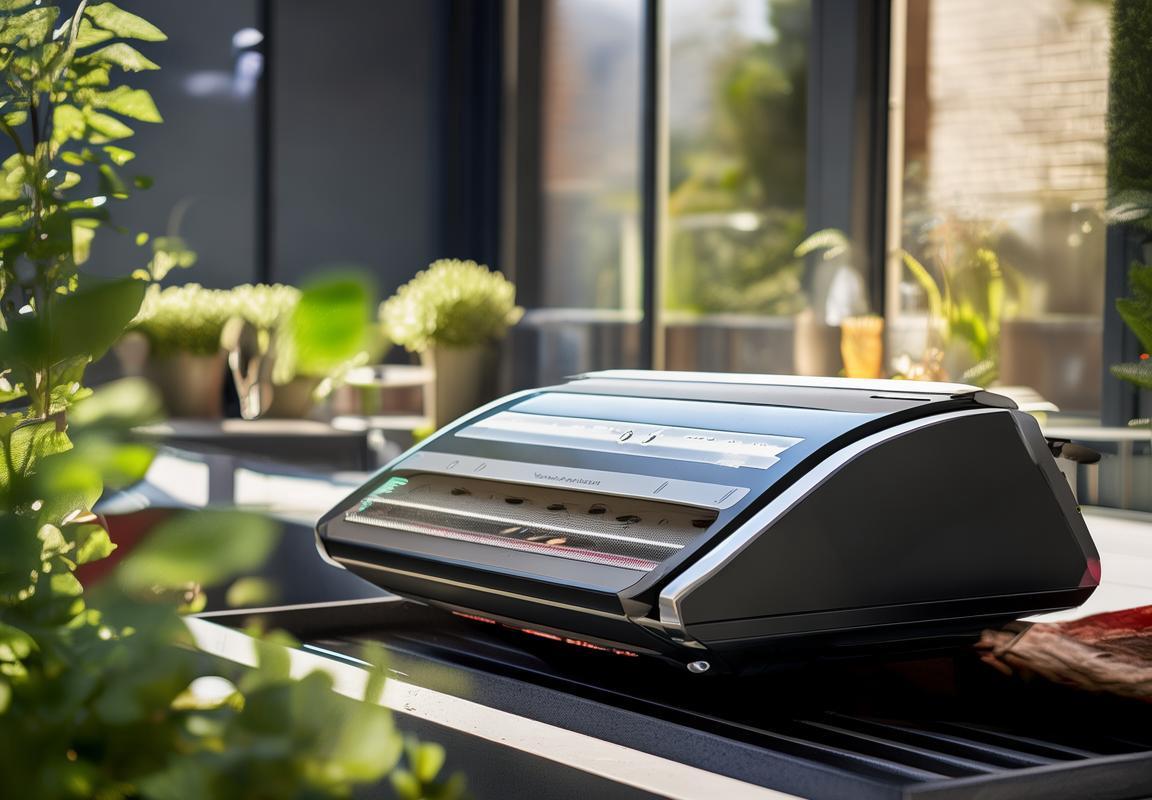
Understanding the Industrie Smokeless Grill Market
The Industrie smokeless grill market has emerged as a significant segment within the culinary appliance industry, offering a unique solution for those who love outdoor cooking but are concerned about the environmental impact and health risks associated with traditional grilling methods. To truly grasp the essence of this market, it’s essential to delve into its key characteristics, growth drivers, and the diverse consumer base it caters to.
Grills that promise to eliminate smoke and its associated odors have gained traction, especially in urban settings where open-air cooking is often prohibited or discouraged. These smokeless grills use advanced technology to capture and neutralize smoke, ensuring that the grilling experience remains enjoyable without the hassle of smoke cleanup or the need for a spacious outdoor area.
The market for Industrie smokeless grills is characterized by a blend of innovation and convenience. These grills often come with features like temperature control, digital displays, and various cooking modes, making them versatile for a wide range of culinary applications. The design of these grills also tends to be sleek and modern, appealing to consumers who value aesthetics as much as functionality.
One of the primary growth drivers for the Industrie smokeless grill market is the increasing awareness of health and environmental concerns. With the rise of air quality issues and the growing number of people suffering from respiratory problems, smokeless grills offer a cleaner alternative that doesn’t contribute to air pollution. This appeal is further amplified in regions with strict regulations on outdoor cooking.
Consumers are also drawn to the convenience factor. Smokeless grills are easier to use and maintain compared to traditional charcoal or wood-burning grills. They require less preparation, produce minimal ash, and are generally more energy-efficient. This ease of use is particularly appealing to busy individuals or families who want to enjoy a good meal without the time-consuming process of lighting a grill.
The Industrie smokeless grill market is not homogeneous; it caters to a diverse range of consumers. Outdoor enthusiasts who enjoy camping, tailgating, or picnicking find these grills to be a game-changer, as they can be easily transported and used in various settings. For urban dwellers with limited space, smokeless grills offer a practical solution for enjoying the taste of grilled food without the need for a backyard or patio.
The market is also segmented by different types of smokeless grills, such as electric, induction, and gas-powered models. Each type has its own set of advantages and is preferred by different consumer groups. For instance, electric grills are favored for their ease of use and clean operation, while gas models are often chosen for their quick heat-up times and intense cooking power.
The competition within the Industrie smokeless grill market is fierce, with numerous brands and manufacturers vying for market share. This competition has led to a surge in product innovation, with companies constantly pushing the boundaries of what is possible in terms of design, technology, and performance. Consumers benefit from this as they have access to a wide array of options that cater to their specific needs and preferences.
Another important aspect of the Industrie smokeless grill market is the trend towards customization. Many consumers are looking for grills that not only perform well but also reflect their personal style. Customization options range from different colors and finishes to unique cooking surfaces and add-ons like built-in thermometers or smoking capabilities. This focus on personalization has opened up new avenues for growth and differentiation within the market.
The future of the Industrie smokeless grill market looks promising, with continued technological advancements and evolving consumer demands. As health and environmental consciousness grows, so too will the demand for smokeless grills. Additionally, the integration of smart technology into these grills is expected to further enhance their appeal, offering users the ability to control their grills remotely and monitor cooking progress through their smartphones.
In conclusion, the Industrie smokeless grill market is a dynamic and rapidly growing sector within the culinary appliance industry. Its appeal lies in its ability to provide a cleaner, more convenient, and personalized grilling experience. By understanding the market’s characteristics, growth drivers, and consumer segments, manufacturers and retailers can better position themselves to capitalize on this trend and meet the evolving needs of their customers.

Key Features of Custom-Made Smokeless Grills
In the realm of modern cooking, the rise of smokeless grills has been a game-changer for both home chefs and culinary enthusiasts. These grills are not just a trend; they are a testament to the evolution of kitchen technology. Here are some key features that make custom-made smokeless grills stand out in the market:
-
Advanced Technology CoreCustom smokeless grills often boast cutting-edge technology at their heart. With precision control systems, these grills are capable of regulating temperatures to perfection, ensuring that food is cooked to the right doneness without the smoky aftermath.
-
High-Quality MaterialsThe construction of these grills is typically top-notch, featuring high-grade stainless steel, cast iron, or ceramic components. These materials not only enhance the durability but also contribute to the even distribution of heat, which is crucial for maintaining the flavor and texture of grilled foods.
-
Smart Sensors and ControlsModern custom smokeless grills come with a suite of smart sensors that monitor internal and external temperatures. These sensors are often integrated with user-friendly controls, allowing for precise adjustments in real-time. Some models even feature apps that connect to your grill, offering remote monitoring and control.
-
Efficient Heat DistributionOne of the standout features of custom smokeless grills is their ability to distribute heat efficiently. This is achieved through innovative designs like convection fans or radiant plates, which ensure that the heat circulates around the food uniformly, resulting in a more consistent cooking experience.
-
Environmentally Friendly OperationBy minimizing smoke, these grills are not only healthier for the home environment but also friendlier to the planet. The reduction in smoke means less particulate matter and carbon emissions, making them a greener option for environmentally conscious consumers.
-
Easy-to-Clean DesignCustom smokeless grills are often designed with easy maintenance in mind. The non-stick surfaces, removable parts, and efficient heat dissipation help in keeping the grill clean after use, saving both time and effort for the user.
-
Versatile Cooking OptionsThese grills offer a range of cooking options that go beyond traditional grilling. They can sear, bake, roast, and even smoke foods, thanks to adjustable temperature settings and sometimes, additional accessories like rotisseries or smoker boxes.
-
Customizable FeaturesWhat sets custom smokeless grills apart is the ability to tailor them to individual preferences. Users can choose from various sizes, designs, and add-ons, such as side burners, additional cooking surfaces, or even built-in lighting for night-time grilling.
-
Energy EfficiencyCustom smokeless grills are designed to be energy-efficient. The technology used reduces heat loss and optimizes energy use, resulting in lower energy bills and a greener footprint.
-
Enhanced FlavorDespite the smokeless aspect, these grills are designed to lock in flavors. The even cooking temperatures and the absence of smoky residue contribute to a cleaner, more pronounced taste in the food, which many chefs and home cooks appreciate.
The combination of these features makes custom smokeless grills a popular choice among consumers looking for a cooking solution that’s as advanced as it is convenient. From the tech-savvy individual to the eco-conscious chef, the appeal of a custom smokeless grill is hard to resist. As the market continues to evolve, it’s exciting to think about what new innovations and customizations will come to light in the world of smokeless grilling.
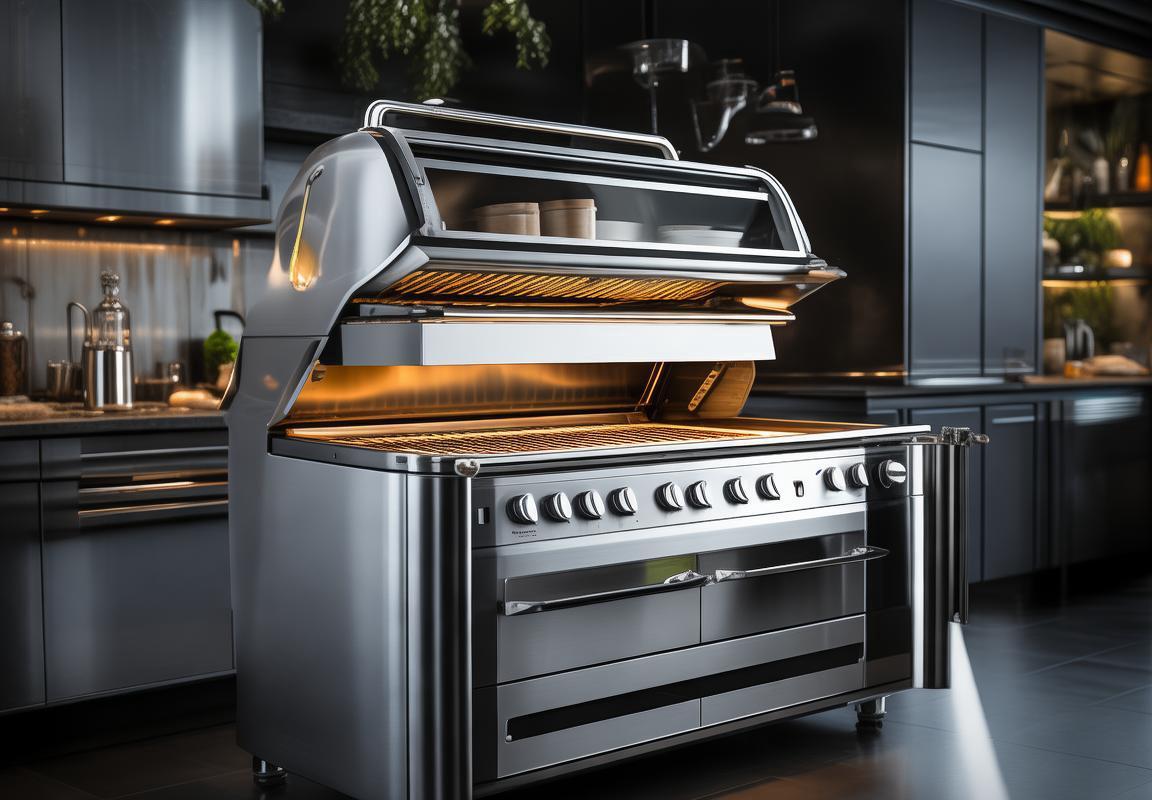
Market Dynamics and Consumer Trends
In the ever-evolving landscape of kitchen appliances, the market dynamics and consumer trends surrounding smokeless grills have shifted significantly. These trends are not only shaped by technological advancements but also by changing lifestyles and environmental concerns.
The shift towards health-conscious living has propelled the demand for smokeless grills. Consumers are increasingly seeking cooking methods that reduce the risks associated with traditional grilling, such as the potential for harmful smoke emissions. This has led to a surge in the popularity of smokeless grills, which offer a healthier alternative without compromising on taste or convenience.
One of the most notable market dynamics is the integration of smart technology into smokeless grills. Smart grills now come with features like temperature control, wireless connectivity, and even cooking timers, making them a favorite among tech-savvy consumers. This integration has not only enhanced user experience but has also opened up new avenues for data collection and analytics, allowing manufacturers to tailor their products to specific consumer preferences.
Another trend is the rise of eco-friendly and sustainable materials in smokeless grill construction. As environmental concerns grow, consumers are gravitating towards products that are made from recycled materials or have a lower carbon footprint. This has spurred innovation in the industry, with some brands opting for bamboo handles or biodegradable components.
Customization has also become a key factor in the market. Consumers are no longer satisfied with one-size-fits-all solutions; they want appliances that reflect their personal style and specific cooking needs. This has led to a rise in custom-made smokeless grills, where customers can choose from a variety of designs, sizes, and features to create a grill that perfectly suits their kitchen and lifestyle.
The trend towards convenience is undeniable. Busy lifestyles have led to a demand for products that save time and effort. Smokeless grills that offer features like rapid preheating, easy-to-clean surfaces, and efficient cooking times are becoming more attractive to time-pressed consumers. Additionally, the portability of some models has made them a hit among outdoor enthusiasts and those with smaller living spaces.
Health and wellness are at the forefront of consumer trends. With the growing awareness of the dangers of indoor air pollution, smokeless grills that improve air quality are becoming a must-have in many homes. These grills not only eliminate smoke but also reduce the risk of carbon monoxide buildup, making them safer for indoor use.
The market for smokeless grills is also influenced by demographic shifts. For instance, the aging population is more likely to seek out products that are easy to use and maintain, while younger consumers are drawn to the latest tech features and social media-friendly designs. This demographic diversity has created a complex but dynamic market landscape.
Moreover, the rise of outdoor dining and the growing popularity of barbecue culture have contributed to the demand for smokeless grills. As more people seek to enjoy the benefits of grilling without the drawbacks, the market for these appliances has expanded significantly.
Lastly, the influence of social media and online reviews cannot be overstated. Word-of-mouth recommendations and online reviews play a crucial role in shaping consumer preferences and purchasing decisions. As such, manufacturers of smokeless grills must focus on building a strong online presence and fostering a community of satisfied customers.
In summary, the market dynamics and consumer trends in the smokeless grill industry are driven by a combination of health consciousness, technological innovation, environmental awareness, customization, convenience, and demographic shifts. Understanding these trends is essential for manufacturers looking to stay competitive and meet the evolving needs of their customers.
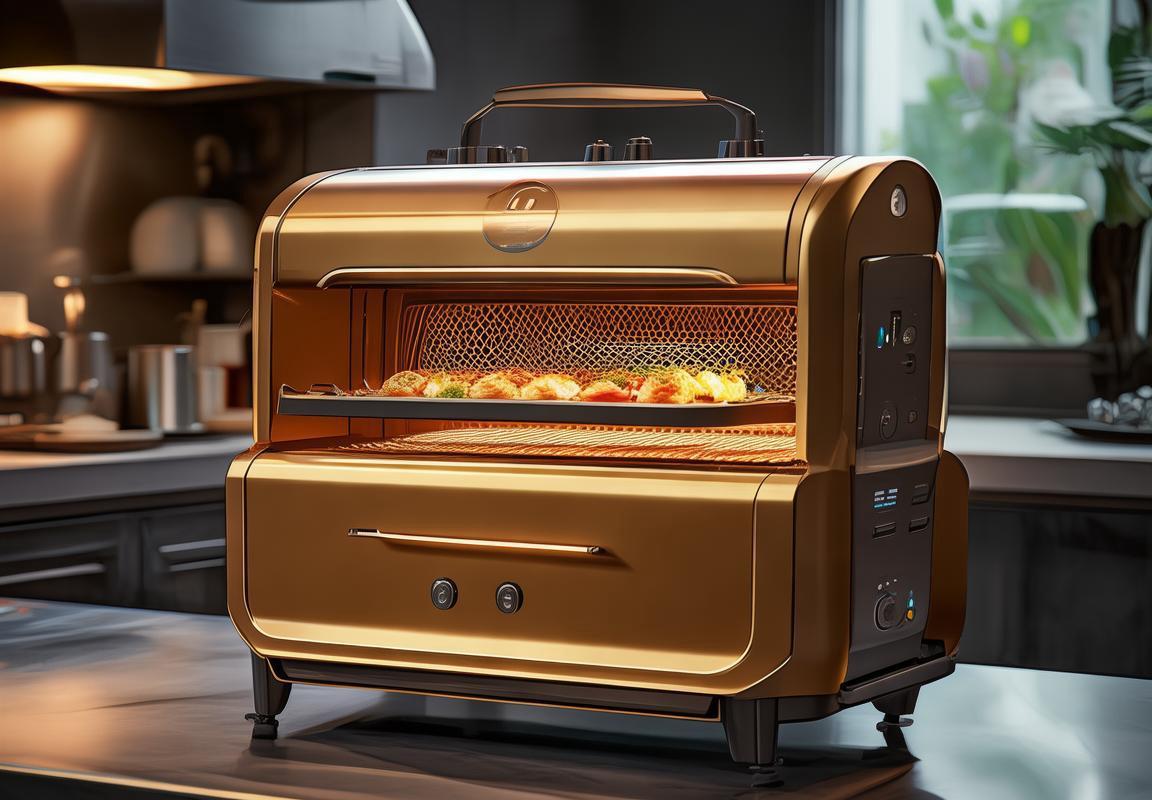
The Impact of Customization on Sales
In the world of kitchen appliances, customization has become a game-changer, especially in the smokeless grill market. The ability to tailor products to individual preferences has not only enhanced customer satisfaction but also significantly impacted sales. Here’s a closer look at how customization is reshaping the sales landscape for smokeless grill manufacturers.
Personalization Leads to Higher Customer EngagementCustomers today are looking for more than just a product; they’re seeking an experience. Customizable smokeless grills allow consumers to express their personal style and cooking preferences, which in turn fosters a deeper connection with the brand. This engagement often translates into repeat purchases and a loyal customer base.
Tailored Solutions for Diverse Cooking NeedsThe diversity of cooking styles and dietary requirements has expanded, and smokeless grills have evolved to meet these varied needs. Customization options, such as adjustable heat settings, different grill plate materials, and even specialized accessories, cater to a wide range of users. This adaptability ensures that each grill purchased is a perfect match for the user’s specific cooking habits, which can lead to higher sales as customers find the perfect fit.
Enhanced Brand Perception and Premium PricingWhen customers can choose the features they desire, they often perceive the product as a premium offering. This perception can justify higher price points, as customers are willing to pay more for a grill that truly meets their expectations. The premium pricing, coupled with the perceived value of customization, can boost sales and increase the average transaction value.
Increased Sales Through Cross-Selling OpportunitiesCustomization often opens up opportunities for cross-selling additional products and accessories. For instance, a customer who opts for a high-end smokeless grill might also be interested in high-quality cooking utensils or a cover to protect their investment. These additional sales not only increase revenue but also deepen the customer relationship, as they see the brand as a one-stop shop for all their grilling needs.
Reduced Returns and WarrantiesA customized product is less likely to be returned due to a poor fit or not meeting expectations. When customers have had a say in the design and features of their grill, they are more satisfied with the purchase. This reduction in returns and warranty claims can save manufacturers money and resources, allowing them to reinvest in marketing and product development to further drive sales.
Competitive Edge in a Crowded MarketThe smokeless grill market is becoming increasingly competitive, with numerous brands vying for consumer attention. By offering customization, manufacturers can differentiate themselves from the competition. A unique selling proposition like customization can attract customers who are looking for something different and can lead to increased market share and sales.
Data-Driven Personalization for Improved Sales StrategiesManufacturers that embrace customization often gather valuable data on customer preferences. This data can be used to refine marketing strategies, improve product development, and predict future trends. By understanding what customers want, manufacturers can tailor their offerings to meet those needs, leading to more targeted sales efforts and higher conversion rates.
Long-Term Customer RelationshipsCustomization can build long-term relationships with customers. When a customer feels that their unique needs are being met, they are more likely to remain loyal. This loyalty translates into repeat business, referrals, and a steady stream of sales over time.
In conclusion, the impact of customization on smokeless grill sales is multifaceted. It enhances customer engagement, allows for tailored solutions, improves brand perception, creates cross-selling opportunities, reduces returns, provides a competitive edge, and supports data-driven sales strategies. As the market continues to evolve, embracing customization is a strategic move that can significantly boost sales and ensure a strong position in the industry.
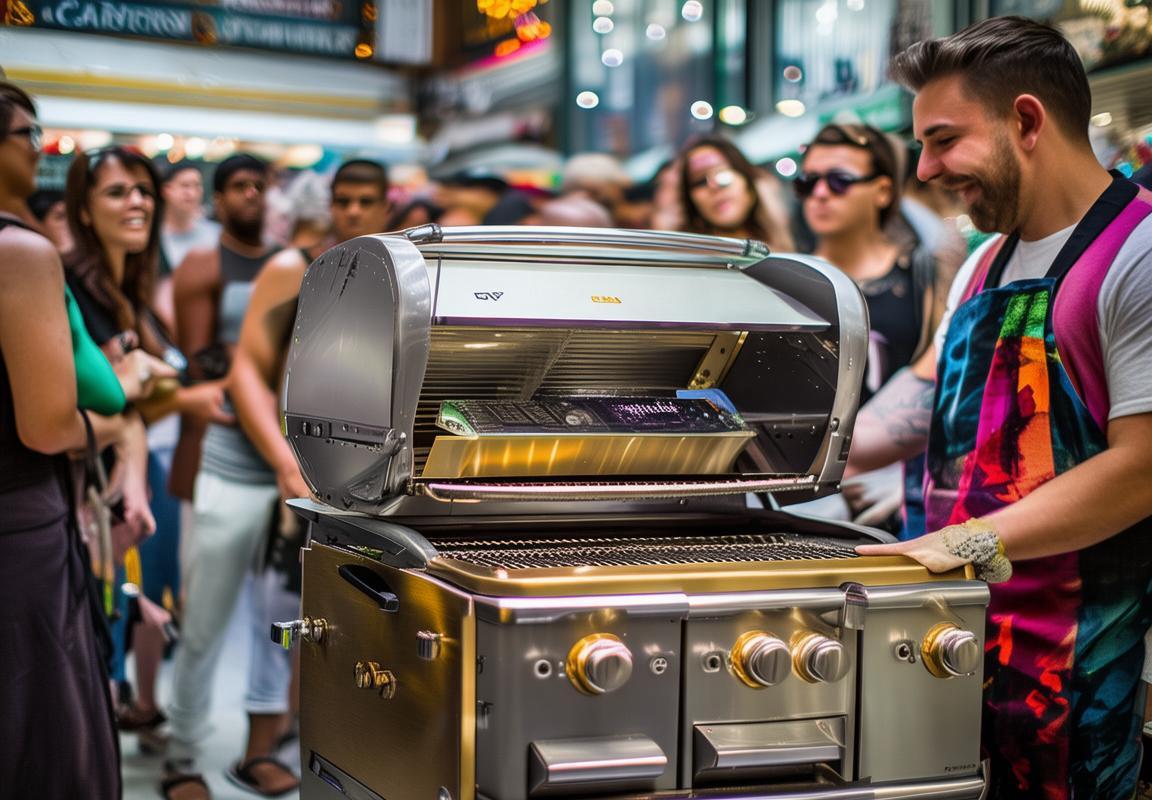
Data-Driven Insights into Market Growth
In recent years, the has experienced significant growth, driven by a variety of factors. Data analytics has emerged as a key tool for understanding this expansion, offering valuable insights into market trends and consumer behaviors. By delving into the data, we can uncover the driving forces behind the surge in demand for kitchen appliances.
The surge in home cooking and meal prepping has been a major factor in the growth of the market. With more people opting to cook at home, the demand for efficient and innovative appliances has skyrocketed. Data from market research firms shows a direct correlation between the increase in home cooking and the rise in sales of appliances like smart ovens, air fryers, and induction cooktops.
Consumers are increasingly seeking appliances that not only save time and energy but also provide a healthier cooking option. The data reflects a shift towards healthier cooking methods, with an upswing in sales of steam ovens, slow cookers, and electric pressure cookers. These appliances cater to the growing health consciousness among consumers, who are looking for alternatives to traditional cooking methods that can reduce fat and calorie intake.
Another significant trend highlighted by the data is the preference for smart and connected appliances. Smart kitchen gadgets equipped with Wi-Fi connectivity and mobile app integration are becoming increasingly popular. Sales figures reveal a consistent rise in the purchase of smart refrigerators, coffee makers, and even smart toasters. These devices offer convenience, allowing users to control their appliances remotely and receive notifications about food freshness or maintenance needs.
The data also indicates a trend towards sustainability and eco-friendly products. Consumers are gravitating towards appliances that are energy-efficient and have a lower environmental impact. Sales data for energy-saving appliances, such as LED cooktops and dishwashers with eco-mode settings, reflect this shift in consumer values.
Moreover, the data reveals regional variations in market growth. For instance, certain regions have seen a surge in demand for premium appliances, with consumers willing to invest in high-end models for their kitchens. This trend is particularly strong in urban areas, where residents have the disposable income to spend on luxury kitchen equipment.
In the market, innovation plays a crucial role in driving sales. The data shows a clear link between the introduction of new technologies and the subsequent increase in product sales. Features like touchless controls, self-cleaning systems, and advanced sensors are all contributing to the growth of the market, as consumers are enticed by the latest technological advancements.
The rise of online shopping has also had a profound impact on the market. With more people turning to e-commerce platforms for their appliance purchases, the data reflects a shift in where consumers are buying their kitchen gadgets. Online sales figures are on the rise, and brands that have adapted their distribution channels to include digital retail are reaping the benefits.
Furthermore, the data paints a picture of a market that is dynamic and responsive to changes in consumer preferences. Shorter product lifecycles and the quick adoption of new trends are evident in the sales data. Brands that can adapt to these changes quickly are able to stay ahead of the curve and capture market share.
Lastly, the data underscores the importance of marketing and branding in the market. Sales figures for appliances that have strong brand recognition and effective marketing campaigns are often higher than those of lesser-known brands. This highlights the need for manufacturers to invest in building a strong brand presence and creating compelling marketing strategies.
In conclusion, the market’s growth is driven by a combination of factors, all of which can be understood and leveraged through data analytics. From the surge in home cooking and health consciousness to the rise of smart appliances and the importance of sustainability, the data paints a comprehensive picture of the market’s current state and future potential.

Challenges and Opportunities in the Industry
In the ever-evolving landscape of the kitchen appliances industry, the challenges and opportunities are as diverse as the needs of consumers. Here’s a closer look at the hurdles and chances that define the sector.
The demand for energy-efficient and eco-friendly appliances has surged, pushing manufacturers to innovate and adapt. As consumers become more environmentally conscious, the industry faces the challenge of balancing sustainability with affordability. However, this shift also presents an opportunity to develop new technologies that not only reduce carbon footprints but also offer cost-effective solutions.
Consumer expectations are at an all-time high, with a growing preference for smart, connected devices. The industry must grapple with the challenge of integrating advanced technology into everyday appliances without compromising on usability or reliability. This challenge is met with the opportunity to create a new category of smart kitchen gadgets that enhance the user experience and streamline household tasks.
The rise of e-commerce has transformed the way consumers purchase appliances. While this has opened up new markets and distribution channels, it has also introduced challenges such as increased competition and the need for robust online customer service. The industry can capitalize on this opportunity by optimizing online presence, offering personalized shopping experiences, and leveraging data analytics to improve customer satisfaction.
Regulatory compliance is a constant challenge for appliance manufacturers, with frequent updates to safety standards and certifications. Navigating these requirements can be daunting, but it also drives innovation and ensures that products meet the highest safety and quality standards. This regulatory rigor presents an opportunity to differentiate products in a crowded market by emphasizing compliance and trustworthiness.
The global supply chain has been disrupted by trade tensions and logistical hurdles. This challenge has prompted manufacturers to diversify their supply chains and invest in local production capabilities. The resulting resilience can turn into an opportunity to reduce costs, improve delivery times, and strengthen relationships with suppliers.
The integration of IoT (Internet of Things) into kitchen appliances has introduced new security concerns. Consumers are increasingly worried about data breaches and privacy issues. The industry must address these concerns head-on by implementing robust cybersecurity measures. This challenge is an opportunity to build trust and loyalty by ensuring that customers’ data is protected.
The trend towards healthier living has spurred a demand for appliances that can help consumers prepare nutritious meals. This challenge of meeting dietary preferences requires appliance manufacturers to innovate in terms of design and functionality. The opportunity here is to create a market for specialized appliances that cater to specific health needs, such as slow cookers for low-carb diets or air fryers for healthy frying alternatives.
The rise of social media and influencer marketing has changed how consumers discover and purchase appliances. The industry faces the challenge of standing out in a noisy digital landscape. However, this presents an opportunity to engage with consumers through targeted content and authentic storytelling, fostering brand loyalty and driving sales.
Lastly, the aging population and changing family dynamics are reshaping the appliance market. As people live longer and family structures evolve, there’s a growing need for appliances that cater to varying lifestyles and abilities. The industry must adapt to these changes, offering a range of products that cater to different age groups and physical abilities. This adaptation is not just a challenge but a significant opportunity to expand market reach and cater to a broader customer base.

Case Studies: Successful Custom Smokeless Grill Brands
In the realm of custom smokeless grill brands, several companies have emerged as leaders, each with a unique approach to capturing consumer interest and market share. Let’s delve into the success stories of a few of these brands, highlighting their strategies and what sets them apart.
-
Brand A: Embracing Technology and Eco-Friendly DesignBrand A has made a name for itself by integrating cutting-edge technology into their custom smokeless grills. Their grills not only reduce smoke and emissions but also offer innovative features like smart temperature control and Wi-Fi connectivity. This brand has tapped into the growing market of eco-conscious consumers, offering a guilt-free grilling experience.
-
Brand B: Leveraging Local CraftsmanshipBrand B has capitalized on the trend of supporting local artisans and small businesses. Their custom smokeless grills are handcrafted by skilled craftsmen, ensuring each unit is unique and of high quality. By focusing on local materials and labor, Brand B has created a niche market for consumers who value tradition and craftsmanship.
-
Brand C: A Focus on Functionality and SafetyRecognizing the importance of safety and practicality, Brand C has designed their custom smokeless grills with a strong emphasis on functionality. These grills come with advanced safety features like automatic shut-off and heat-resistant materials. The brand has also incorporated user-friendly design elements, making them a favorite among busy homeowners and families.
-
Brand D: Targeting Health-Conscious ConsumersBrand D has identified the health trend as a key driver in the smokeless grill market. Their grills are designed to eliminate the risks associated with traditional grilling, such as harmful smoke and chemicals. By marketing their products as a healthier alternative, Brand D has attracted a loyal customer base of individuals concerned about their diet and well-being.
-
Brand E: Customization and PersonalizationOffering a high level of customization, Brand E allows customers to choose from a variety of designs, finishes, and features to create their perfect smokeless grill. This brand has embraced the idea that personalization is key to customer satisfaction, and they have seen a surge in sales as a result.
-
Brand F: Collaborating with Celebrity ChefsBrand F has cleverly used the influence of celebrity chefs to promote their custom smokeless grills. By partnering with well-known chefs who endorse the brand, they have tapped into a broader audience of cooking enthusiasts and professionals. This strategy has not only increased brand awareness but has also elevated the perceived value of their products.
-
Brand G: Social Media and Influencer MarketingBrand G has leveraged the power of social media to showcase their custom smokeless grills to a global audience. By collaborating with influencers and creating engaging content, they have effectively reached potential customers. Their approach has generated buzz and has helped to build a strong online community around their brand.
-
Brand H: Expansion into International MarketsRecognizing the global potential of the smokeless grill market, Brand H has strategically expanded into international markets. By adapting their product offerings to meet the specific needs and preferences of different regions, they have successfully captured a diverse customer base worldwide.
-
Brand I: Sustainability and Corporate ResponsibilityBrand I has positioned itself as a leader in sustainability and corporate responsibility. Their custom smokeless grills are not only environmentally friendly but also support local communities through their business practices. This brand’s commitment to social and environmental issues has resonated with consumers who are increasingly concerned about these issues.
-
Brand J: Continuous Innovation and R&DBrand J understands that innovation is the lifeblood of success in the smokeless grill industry. By investing heavily in research and development, they consistently introduce new features and improvements to their products. This commitment to innovation has kept them ahead of the competition and has solidified their position as a leading custom smokeless grill brand.
These case studies illustrate the diverse strategies that successful custom smokeless grill brands have employed to capture market share and build a loyal customer base. From technology and eco-friendliness to personalization and sustainability, these brands have shown that there is no one-size-fits-all approach to success in this dynamic industry.
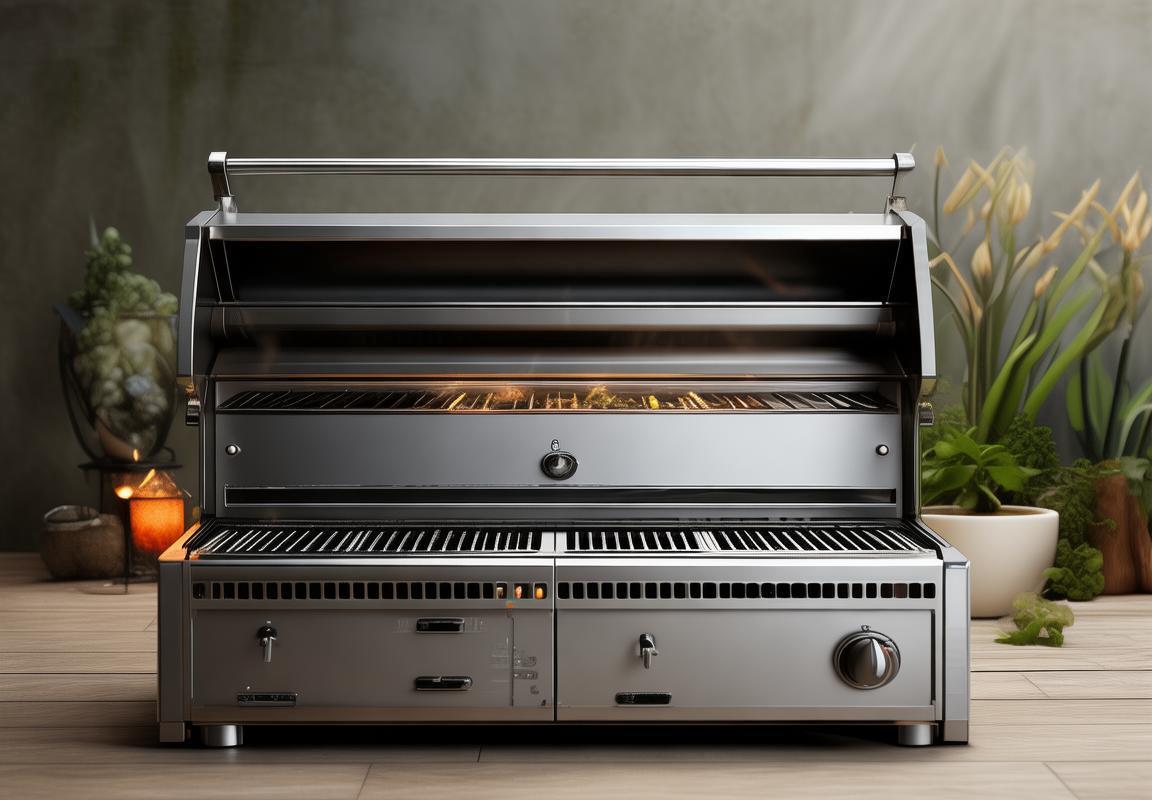
The Future Outlook for Industrie Smokeless Grill Fabrik Maßanfertigung
In the evolving landscape of the smokeless grill market, Industrie Smokeless Grill Fabrik Maßanfertigung is poised to play a pivotal role. The future outlook for this niche player is marked by several factors that both challenge and excite industry watchers. As we delve into the potential trajectory, it’s clear that innovation, market trends, and consumer preferences will shape the next chapter of this segment.
Consumer demand for personalized experiences is on the rise, and this extends to kitchen appliances as well. Industrie’s focus on Maßanfertigung, or custom-made, smokeless grills, positions it uniquely in a market that is increasingly moving towards customization. This tailored approach allows consumers to select from a range of materials, sizes, and features that cater to their specific needs and preferences, creating a product that is as unique as the user.
The integration of smart technology is another area where Industrie stands to gain. As home appliances become more connected and user-friendly, the ability to offer grills with built-in smart features, such as temperature control, cooking time monitoring, and compatibility with smart home systems, could be a game-changer. This not only enhances the user experience but also opens up new avenues for data collection and analytics, which could inform future product development.
Moreover, the sustainability movement is gaining momentum, and Industrie’s custom smokeless grills could benefit from this trend. By offering eco-friendly materials and energy-efficient designs, the company could tap into a market segment that values green living. This could also translate into positive brand image and a competitive edge over non-sustainable competitors.
The global market for smokeless grills is witnessing rapid growth, driven by urbanization and the rise of health-conscious consumers. As cities expand and more people adopt a more active lifestyle, the convenience and health benefits of smokeless grills are becoming increasingly appealing. This growth is not confined to any single region; rather, it’s a global phenomenon that Industrie needs to be prepared to capitalize on.
However, challenges await. The high cost of customization can be a barrier for some consumers, especially in regions where disposable income is lower. To address this, Industrie might consider offering a range of customization options at different price points, making the experience more accessible to a broader market.
Additionally, the competitive landscape is heating up. Established players are investing heavily in research and development to introduce new features and designs, and smaller startups are emerging with innovative ideas. To stay ahead, Industrie will need to continuously innovate and find ways to differentiate its products.
Regulatory changes and safety standards are also critical factors to consider. As the market grows, so does the scrutiny from regulatory bodies. Industrie must ensure that its products comply with all relevant standards, which can be a complex and costly endeavor.
Despite these challenges, there are significant opportunities. The rise of outdoor living spaces in urban areas has created a demand for high-quality, durable grills that can withstand various weather conditions. This presents an opportunity for Industrie to expand its product line and cater to this niche market.
Furthermore, the growing popularity of health-conscious cooking methods has opened doors for smokeless grills. With a focus on reducing smoke and enhancing flavor, these grills are becoming a preferred choice for those looking to minimize the health risks associated with traditional grilling methods.
In conclusion, the future outlook for Industrie Smokeless Grill Fabrik Maßanfertigung is bright, but it requires strategic planning and a willingness to adapt to changing market dynamics. By embracing customization, integrating smart technology, focusing on sustainability, and navigating regulatory landscapes, Industrie can carve out a strong position in the smokeless grill market. The key will be to balance innovation with affordability and to stay ahead of consumer expectations in a rapidly evolving industry.
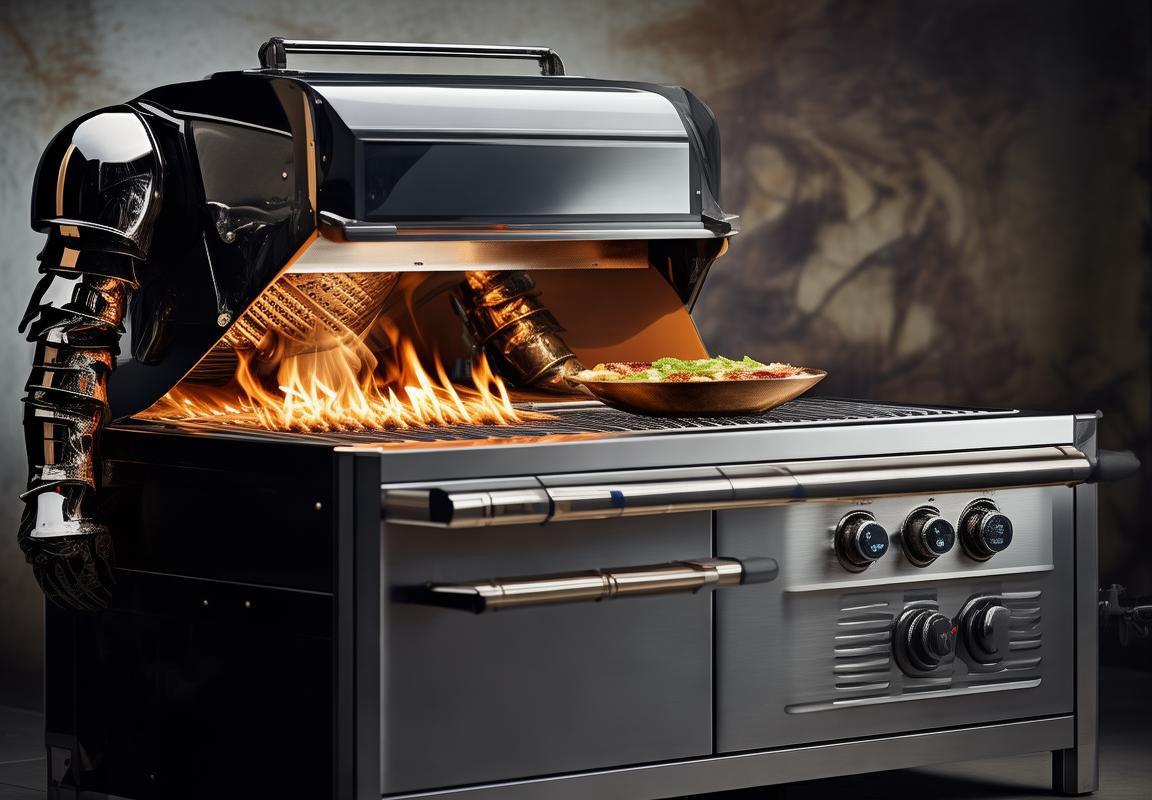
Conclusion: Tailoring the Grill Experience
The tailored grill experience has become a cornerstone of modern outdoor cooking, offering consumers a personalized touch to their culinary adventures. From bespoke designs to cutting-edge technology, the industry has evolved to cater to the diverse tastes and preferences of grill enthusiasts. Here’s a closer look at how this trend is shaping the market and enhancing the overall grilling experience.
In recent years, the demand for custom-made smokeless grills has surged, reflecting a shift in consumer preferences. People are no longer satisfied with one-size-fits-all solutions; they seek appliances that not only meet their cooking needs but also reflect their individual style. This shift is driving a wave of innovation, with manufacturers pushing the boundaries of design and functionality.
Customization options for smokeless grills range from selecting the size and shape of the grill to choosing from a variety of materials and finishes. Some brands offer modular systems that allow customers to mix and match components, creating a grill that is uniquely their own. This level of personalization not only adds a unique aesthetic appeal but also enhances the usability and efficiency of the grill.
Moreover, the rise of smart technology has further transformed the grill experience. Smart grills equipped with digital controls and connectivity features allow users to monitor and adjust cooking temperatures and times remotely. This level of convenience and control is particularly appealing to busy professionals and tech-savvy consumers who want to enjoy the benefits of grilling without the hassle.
The environmental impact of cooking methods has also played a significant role in shaping the grill market. As more people become aware of the health and environmental hazards associated with traditional smoking, the demand for smokeless grills has increased. These grills offer a clean, efficient way to enjoy grilled foods without the smoke and smell, making them an attractive option for eco-conscious consumers.
Safety remains a top priority for grill manufacturers, and this is evident in the features they are incorporating into custom smokeless grills. Features like automatic shut-off systems, child safety locks, and non-slip surfaces are becoming standard, providing peace of mind for users. Additionally, the use of high-quality materials that are resistant to rust and corrosion ensures that these grills are durable and long-lasting.
Grill brands that offer customization are also tapping into the trend of experiential marketing. By allowing customers to design their own grills, these companies are creating a unique and memorable shopping experience. This approach not only boosts customer satisfaction but also fosters brand loyalty, as customers feel a personal connection to their purchase.
The market for custom smokeless grills is not without its challenges. The cost of customization can be higher than that of standard models, which may deter some consumers. However, the premium pricing is often justified by the superior quality, durability, and functionality of these products. Brands that find the right balance between price and value are likely to see sustained growth in this segment.
Another challenge is the complexity of managing a customized product line. From design to production and delivery, each step must be carefully managed to ensure that customers receive their unique grills on time and in perfect condition. This requires a high level of organization and attention to detail, which some manufacturers may struggle to maintain.
Despite these challenges, the opportunities in the custom smokeless grill market are vast. As more people embrace outdoor cooking and seek out unique experiences, the demand for personalized grilling solutions is expected to grow. This presents an opportunity for brands to differentiate themselves in a crowded market and to create a loyal customer base.
In conclusion, the tailored grill experience is a testament to the evolving nature of consumer preferences. As the industry continues to innovate and cater to these desires, we can expect to see even more creative and sophisticated smokeless grill options hitting the market. Whether it’s through customization, smart technology, or a focus on sustainability, the future of grilling looks to be both exciting and diverse, offering something for every grill enthusiast.